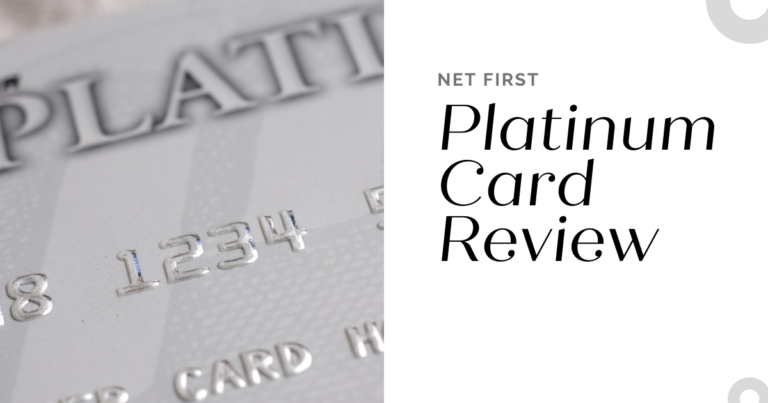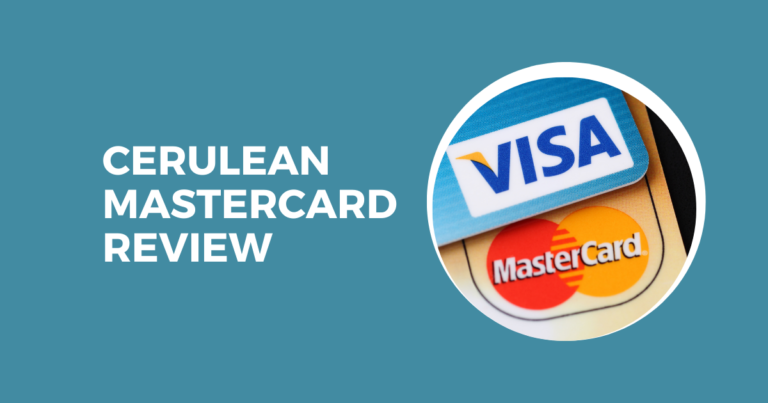5 Credit Score Factors You Need To Know
Introduction
Payment history, length of credit history, debt-to-credit ratio, new credit, and credit quantity all affect your credit report and credit score. Before renting an apartment, landlords may ask for your credit card report. The lenders determine your hard inquiries history and new credit lines you opened within the last year through the FICO score. Experts advise that you never terminate credit card accounts, even if you have paid them off in full because a long history (if it is solid) will raise your credit score. Listed are the 5 Credit Score factors that influence your credit score.
What is a credit score?

A credit score is a number given to the borrowers based on their use of the credit accounts. Using the score, the lenders decide if the borrower is risky. Credit card firms, auto dealers, and mortgage bankers are three types of lenders who will examine your credit score before choosing how much and what interest rate they are ready to offer you. In addition, landlords and insurance firms may check the credit score before renting out an apartment and providing an insurance policy to understand if you are responsible.
5 Credit score factors

Which factors are responsible for your FICO score? First, let’s understand the five elements of credit score. Your credit score indicates if you have a track record of financial stability and competent credit management. The score might vary from 300 to 850. Commonly the score is called the FICO score. The major credit bureaus calculate it based on your credit file information. Listed are the components that make up your credit score.
Payment History
When lenders lend money, they have one major concern: “Will I get it back?”
The most significant aspect of your credit score considers whether you can be relied on to repay cash that has been given to you. Your payment history is the component that takes into account the following factors and determines your score:
Have you paid all of your payments on time for each account shown on your credit report? Late payments negatively impact your credit history as well as score. How late did you pay—30 days, 60 days, or 90 days or more if you paid late? You have a lower score if you pay your dues late. Has your account been sent to the collections? These are the warning signs to potential lenders that you may not repay them.
The period since the previous bad incident and the frequency of missed payments reduces the credit score. For example, someone might have missed multiple credit card payments five years ago. It would be less risky for them than someone who missed one large payment in the current year.
How much you owe?
FICO scoring takes into account your credit usage ratio. It compares the amount of debt you have to your available credit limits. This second-most critical component considers the following elements:
How much of your overall credit limit have you used? Don’t assume that you should have a $0 balance on the account to get good grades. Of course, less is ideal, but having a small amount is better than nothing. Because lenders want to check if you are responsible and stable enough to repay it after you borrow money.
How much do you have to repay on various accounts, such as a mortgage, vehicle loans, credit cards, and installment loans? Credit scoring software prefers to see that you have a variety of credit kinds and that you handle them all carefully.
How much do you have to repay overall, and considering the actual amount on the installment loans? Understand that less is more. Someone with a $50 balance on a credit card with a $500 limit, for example, will appear more responsible than someone with an $8,000 load on a credit card with a $10,000 limit.
Length of credit history
Your credit score also determines the duration of your credit use. For example, how long have you had responsibilities? Does your oldest account hold a very long history, or what is the age of the other accounts?
Long credit history is advantageous (provided late payments or other elements have not damaged it). Still, a short history is acceptable as long as you have completed your payments on time and do not owe excessive amounts.
Financial experts usually advise leaving the accounts open, although you no longer use them. It is because your the account’s age will boost your score. On the other hand, your total score may suffer if you close your oldest account.
New Credit
Your FICO score records the number of your new accounts. In addition, it records the number of new accounts you have lately applied for and when you opened a new account the last time.
Lenders often make a hard inquiry (also known as a hard pull) when you apply for a new line of credit. It is a process of verifying your credit information throughout the underwriting phase. It is not the same as a soft inquiry, such as collecting your own credit information.
Hard draws might affect your credit score by temporarily dropping the credit score. The score suggests that if you’ve recently created multiple accounts and the percentage of these accounts is large relative to the overall number, you may be at higher credit risk.
Types of credit used
The FICO system also examines if you have a mix of other sorts of credit, such as retail accounts, credit cards, installment accounts, and mortgages, while calculating your credit score. It again considers the overall accounts you have. Because this is a minor score component, there is nothing to be worried about if you don’t have accounts in all of these categories. Besides, don’t establish additional accounts solely to broaden your credit mix.
Factors that don’t impact your credit score

- Income fluctuations: Knowing that your income isn’t included in your credit reports might shock you. As a result, earning less or changing your income sources does not affect your credit ratings. Whether you’re employed, jobless, on government assistance, or living paycheck to paycheck, you may have good credit. Of course, losing your work or company revenue may significantly impact your capacity to pay your payments on time, which is a crucial element in determining your credit score.
- Your personal details: Your credit reports contain personal information, but it is restricted to your name, current and past residences, Social Security number, birthday, and public information. For example, a documented lien or bankruptcy. Because the lenders never include your race, gender, marital status, education level, religion, political party, or income in your credit files, such characteristics do not affect your credit ratings.
- Using a debit card to make purchases: Bank accounts are not included in your credit reports since they only contain credit accounts. As a result, using a debit card connected to your bank’s checking or savings account never aids in credit building.
- Credit is being withheld: If you’ve been denied credit, you may be concerned that it may harm your credit. However, your credit reports do not indicate whether a loan or credit card application was accepted or refused.
Account types that affect your credit score

Credit files keep a record of two forms of debt. These debts are known as installment loans and revolving credit. Revolving and installment accounts are great for establishing credit ratings since they preserve your debt and payment history record.
Revolving credit
A line of credit (LOC) and a credit card are revolving credit. Even if you make payments on your revolving credit account, your credit limit does not alter. Therefore, you can return to your account as frequently as you like to borrow additional money. But remember not to exceed your limit.
There is no defined payment schedule with revolving credit because you are not borrowing a large sum when the account is started. You are permitted to borrow up to a specified amount. This flexibility, however, frequently leads to reduced borrowing quantities and higher interest rates. It is because borrowers pay interest just on the amount borrowed, not the whole credit limit.
Installment credit
The specified duration and termination date, generally referred to as the loan’s term, are the main distinctive aspects of an installment credit account. In addition, an amortization plan is typically included in the loan agreement, in which installment payments gradually lower the principle over the course of several years.
Mortgages, vehicle loans, school loans, and personal loans are the common installment loans. You know your monthly payment amount and how long you will make payments with each. To borrow extra money, you must submit an additional credit application.
How does having different accounts impact my credit score?
If you create new bank accounts at many banks in a short period of time, your credit score may suffer significant short-term damage if more than one of these organizations pulls your credit report. The second scenario might occur if you lead the account into negative territory.
It might happen if you overdraw your account or your monthly account maintenance costs deplete your account balance. If your bank accounts remain negative for an extended time, the bank may send your account to the collections agency to recover the sum. It would significantly negatively impact your credit report and credit score.
Does a service account pose any impact on my credit score?
Credit scores are essentially determined by the information included in a consumer credit report. It contains an entire credit history of credit cards and loans, any outstanding accounts, collection cases, and so on. In addition, all creditors provide credit-related information to credit reporting organizations such as CIBILTM.
Service accounts are not included in credit reports since they do not include any borrowing or debt. Therefore, a savings account or similar information on the credit report does not influence your credit score. The same is true for savings account actions such as deposits and withdrawals. Because such information will not be included in your credit reports, it is not taken into account when calculating your credit scores.
Factors that can hurt your credit score

The methodology of the two largest scoring organizations in the United States, FICO, and VantageScore, differ slightly, although they agree on the two most essential variables. Payment history and credit usage, which is the percentage of your credit limits that you actually use, account for more than half of your credit score. Concentrate your efforts primarily on those two elements while keeping an eye on the others.
The amount of time you’ve had credit for: Keep old accounts active for as long as possible unless you have a compelling reason to terminate them, such as an annual charge on a card you no longer use. In this category, you might be able to help yourself a little by becoming an authorized user of a person having a good payment history.
The credit mix, or the types of credit you have: It’s preferable to have different installment accounts and credit card accounts. Installment accounts are those with a defined number of equal payments, such as vehicle payments or mortgages.
The amount of time it has been since you applied for fresh credit: Each application that results in a hard query on your credit may deduct a few points from your score.
Total balances and debt: It’s ideal if you’re making progress toward debt repayment.
Ways to improve your credit score

You can improve your credit score by taking basic measures. The measures include opening an account that reports to credit agencies, keeping enough balances, and paying on-time payments. In addition, you may improve your credit score by obtaining credit for paying expenses such as your mobile phone, utilities, and popular streaming services, which are all free.
Create Your Credit File
You can create your credit file by opening a new credit account that reports to the main credit bureaus. You will find that most of the lenders report to all the credit bureaus. It is a critical initial step toward building a credit file. It is important to know that you cannot build a strong track record unless you have an account in your name. Therefore, opening a few accounts and keeping them active might be beneficial.
Don’t Forget to Make Payments
Payment history is the main factor in calculating your credit ratings. If you have a lengthy history of on-time payments, you might build high credit scores. To abide by this rule, you must ensure that you do not miss out on credit card payments for more than 29 days since this will impact your credit score.
Make Up For Past-Due Accounts
Getting them up to date may assist if you’re behind on your bills. A late payment history stays for seven years on your credit report. But if you keep all of your accounts up to date, it will help your ratings. Furthermore, it prevents subsequent late payments and late fines from recording your credit history.
Reduce the balances on your revolving accounts
You might not be in debt. But if you have a huge balance on the revolving cards, you might have a high credit use rate. It will hurt your credit score. Your revolving accounts are the credit cards and lines of credit. If you keep a low balance on the cards compared to the respective credit limits, it will help you improve your credit score.
Limit How Frequently You Apply for New Accounts
While you may need to create accounts to grow your credit, you should normally restrict the number of credit applications you make. Applying for new credit card accounts might lead you to pull a hard inquiry. It will then lower your scores. Another negative aspect of this hard inquiry is that it will accumulate over time and significantly affect your credit ratings. In addition, if you choose to open a new account, be sure that the age of other existing accounts will reduce, which might result in lower credit ratings.
Steps to take if you don’t have a credit score

Remember, it takes time to create a credit history. It might take six months to a year, and it depends on how careful you are, how you manage it, and how frequently you use it. It takes considerably more effort to create an exceptional credit score. Simply keep working if you want to achieve and maintain an outstanding credit score range. The fundamental tenet for achieving and maintaining a decent credit score is consistency. Consistently maintaining all the ways will definitely lead to an exceptional credit score and history.
Make an Application for a Credit Card
Most lenders and credit card firms hesitate to people having no credit history. It is due to the fact that your credit history is the only method they can determine whether or not you will return the loan amount on time. As a result, to establish credit, you must utilize credit.
The question is, what will you do to create a credit if lenders are unwilling to grant you credit? Fortunately, you have a few solutions to this critical issue. A credit card is the prevalent financial item to start a credit journey. Getting a credit card account is the simplest and most usual technique to improve your credit score.
Become an Approved User
Getting an unsecured card is another technique to build your credit score. We previously said in the preceding paragraph that persons with no credit history could not obtain an unsecured credit card. However, you can improve your credit score by becoming an authorized user on a card with a good credit score. For example, if your family member has an excellent credit score, you can ask them to designate you as an authorized user on the card. Because you’re new to credit, you must be extremely cautious about how you use it, especially if you’re an authorized user, because a single blunder will directly influence the credit score of the person whose credit card you’re using.
Avoid applying for many credit cards at the same time.
You must be aware that you affect your credit ratings each time you apply for a credit card. Therefore, stop yourself from applying for many credit cards within a short period of time. Furthermore, there is no purpose in eroding your credit score, which you are attempting to build. Instead, you can utilize the one you already have to demonstrate your ability to manage credit well. Finally, always keep your balance low and pay on-time bills in full.
Conclusion
You know that a credit score is critical for loan approval and receiving the best interest rates. However, it does not mean that you have to stress over the scoring criteria to have an excellent credit score that the lenders expect. In general, if you correctly handle your 5 credit Score Factors, your score will shine.






